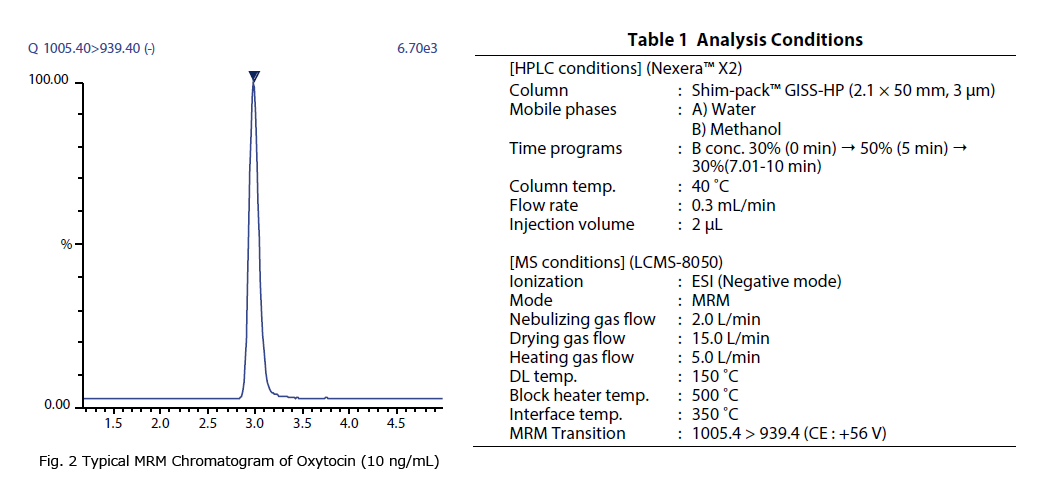Quantitative Analysis of Oxytocin in Rat Plasma Using LC/MS/MS
Oxytocin is a peptide hormone that consists of nine amino acids and one S-S bond and is secreted by the posterior pituitary gland. It is used to induce labor pains, as it promotes contraction of the uterine muscles. Oxytocin has attracted attention in recent years as it is thought to be strongly related to interpersonal relationships, particularly bonding between mothers and children, family members, and romantic partners. This article introduces an example in which oxytocin in rat plasma was analyzed with an LCMS™-8050 triple quadrupole mass spectrometer.
Sample and Pretreatment

Fig. 1 Pretreatment Workflow of Rat Plasma Sample
A rat plasma sample was collected after centrifuging blood (rat SLC Wistar derived) treated with heparin to inhibit coagulation. Protein removal treatment was conducted by adding a 10-fold volume (1 mL) of acetonitrile to 100 μL of this plasma. After additional centrifuging, 1 mL of the supernatant was transferred to another tube and centrifugally concentrated under a reduced pressure. Fig. 1 shows the pretreatment workflow of the rat plasma sample.
Analysis of Standard Substance
The standard substance of oxytocin was properly dissolved and diluted using a 30% methanol solution, and LC/MS/MS measurements were conducted under the analysis conditions shown in Table 1. Fig. 2 shows a typical MRM chromatogram (10 ng/mL) of oxytocin.

Linearity of Calibration Curve
Fig. 3 shows the calibration curve of oxytocin. When calibration curves were prepared in the concentration range from 0.1 to 500 ng/mL, satisfactory linearity with a contribution rate r2=0.999 or more was obtained. Table 2 shows the measurement results of the oxytocin standard substance solution.



